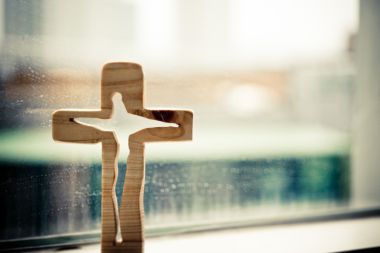Nicaraguan court sentences Catholic bishop to 26 years in prison, strips him of citizenship for 'treason'

(CP) A Nicaraguan court sentenced Catholic Bishop Rolando Alvarez to more than 26 years in prison on charges of treason, undermining national integrity and spreading false news after the critic of President Daniel Ortega declined to be expelled to the United States as part of a prisoner release.
Alvarez, the bishop of Matagalpa diocese, was also fined and stripped of his Nicaraguan citizenship, Reuters reported, noting that his sentencing was moved up unexpectedly from its original date in late March without explanation.
The bishop declined to join 222 other political prisoners, including four priests, who were expelled to the United States on Thursday as part of an agreement with the U.S. State Department, Catholic News Agency said, adding that he chose to remain in Nicaragua to support the Catholics facing repression under the dictatorship.
In televised remarks, Ortega criticized the released prisoners as "criminal mercenaries" for foreign powers seeking to undermine national sovereignty.
Alvarez, who was being held under guard at a house in the capital city Managua, has been moved to La Modelo Tipitapa prison, the U.K.-based group Christian Solidarity Worldwide said in a statement.
CSW's Head of Advocacy, Anna Lee Stangl, said while her group appreciates the work of the U.S. to open a legal and safe channel for the prisoners to leave Nicaragua, "we note that the choice reportedly offered to these individuals by the Nicaraguan government of remaining in prison in inhumane conditions or going into forced exile is one no one should ever be forced to make."
Bishop Alvarez and several other priests and seminarians were arrested last August amid escalating tensions between the Catholic Church and Ortega's government, which has grown increasingly intolerant of any form of dissent.
The Nicaraguan federal police claimed they arrested Alvarez in order to "recover normality for the residents and families of Matagalpa," and had they not arrested him, he would have continued with "destabilizing and provocative activities," Catholic News Agency reported at the time.
Silvio Baez, a senior Nicaraguan bishop exiled in Miami, called the sentencing "irrational and out of control," praising Alvarez's "moral high ground" and predicting in a tweet that he would eventually be freed.
The Nicaraguan congress, dominated by Ortega's Sandinista National Liberation Front, had ordered the closure of over 1,000 nongovernmental organizations, including Mother Teresa's charity, PBS reported at the time.
Pope Francis has expressed concerns about the persecution of Catholic Church leaders deemed a threat to the ruling powers.
"I am following closely, with concern and sorrow, the situation in Nicaragua, which involves both people and institutions," the pope said in his address to pilgrims in St. Peter's Square for his weekly blessing after Alvarez's arrest. "I would like to express my conviction and my hope that, through open and sincere dialogue, the basis for a respectful and peaceful coexistence can still be found," he said, as reported by Vatican News at the time.
An earlier report by Nicaraguan lawyer Martha Patricia Molina Montenegro, a member of the Pro-Transparency and Anti-Corruption Observatory, said more than 190 attacks had occurred against the Catholic Church since 2018. She was quoted by CNA as saying that "Ortega fears no one."
"The police are acting like a criminal group that does not submit to the rule of law and once again it makes clear that Nicaragua is a dictatorship where they proceed according to the whim and state of mind of President Daniel Ortega and his consort," she said.
An ideology in Nicaragua portrays Ortega as being "anointed by God ... for sacred Nicaragua."
A trend of persecution started in Nicaragua after protests against reforms to the public pension system in April 2018. The protests came after about a decade of deteriorating economic conditions in the country. Protesters, mostly students, demanded democratic reforms and that President Ortega and his wife, Vice President Rosario Murillo, step down as they allegedly established a dictatorship marked by nepotism and repression.
During the initial days of the 2018 protests, Ortega requested that the Catholic Church act as a mediator. But his administration also began using brutal force against the protesters and later on Catholic clergy.
Catholic clergy aided and provided sanctuary to protesters and voiced support for the right to protest peacefully. But as a result, Ortega used his government and supporters to persecute clergy members, worshipers and various Catholic organizations.
Hundreds of people died in the protests in 2018.











